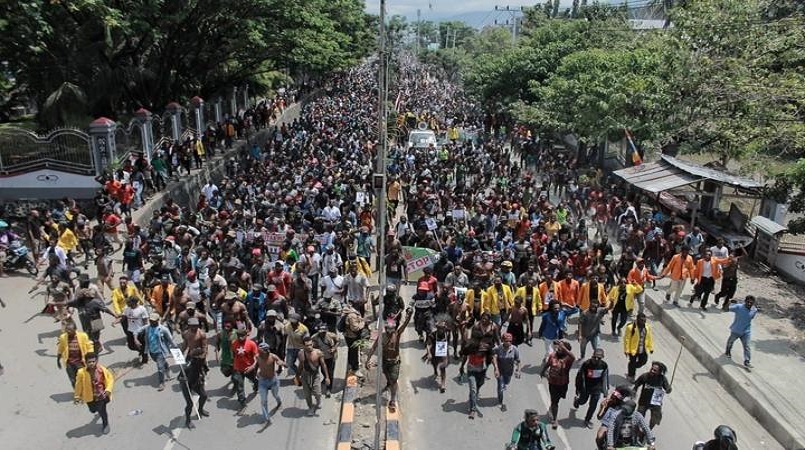
As thousands of Papuans took to the streets for a second week of mass demonstrations, Pacific leaders have conceded that, to date, their stance on West Papua has achieved little.
The last 10 days have seen some of the largest public mobilisations in Indonesia's easternmost regions for years, with tens of thousands taking to the streets across Papua and West Papua provinces.
Dozens have been arrested and there has been rioting in some areas, with the Parliament building in Manokwari razed. More than 1000 police and military personnel have been deployed to bolster an already significant military presence in the region.
On Wednesday, there were reports that up to six people were killed when the military opened fire on a rally in the Deiyai regency. At least three others were injured, and the military said one soldier had been killed. Indonesian police disputed those numbers, saying two civilians and one police officer were killed.
The recent surge of protests and violence has prompted a reckoning among Pacific leaders, who for years have considered the struggle in their neighbourhood, but done little as they stood divided over the extent of their support.
"Something more has got to be done because the human rights situation is worsening," said Ralph Regenvanu, the foreign minister of Vanuatu, whose country has been the most ardent supporter of the West Papuan independence movement.
The western half of New Guinea has been the scene of a low-level independence conflict for decades, but in the past year, the human rights situation has deteriorated significantly.
Conflict between rebels and the military has raged in the Highlands regency of Nduga. At least 100 civilians have been killed, aid organisations said, and thousands more have been displaced as fighting moved from village to village. Many are now living in squalor in ramshackle refugee camps in the rugged and remote interior.
Pacific Council of Churches general secretary Reverend James Bhagwan who visited Papua earlier this year said the situation among indigenous Papuans was dire.
"The trauma that they are dealing with which is decades old just keeps compounding because they are marginalised, [and] they struggle for a sense of hope," he said in an interview at this month's Pacific Islands Forum leaders summit in Tuvalu.
